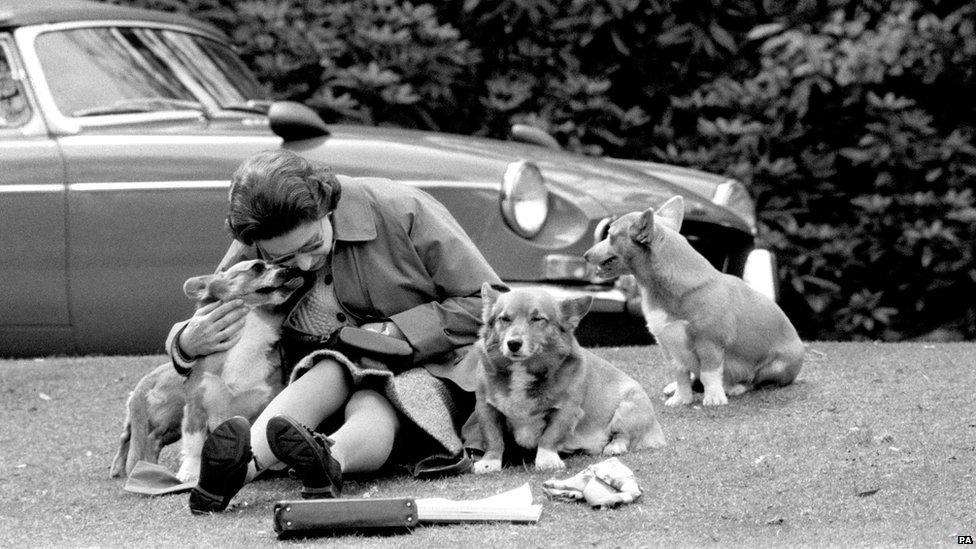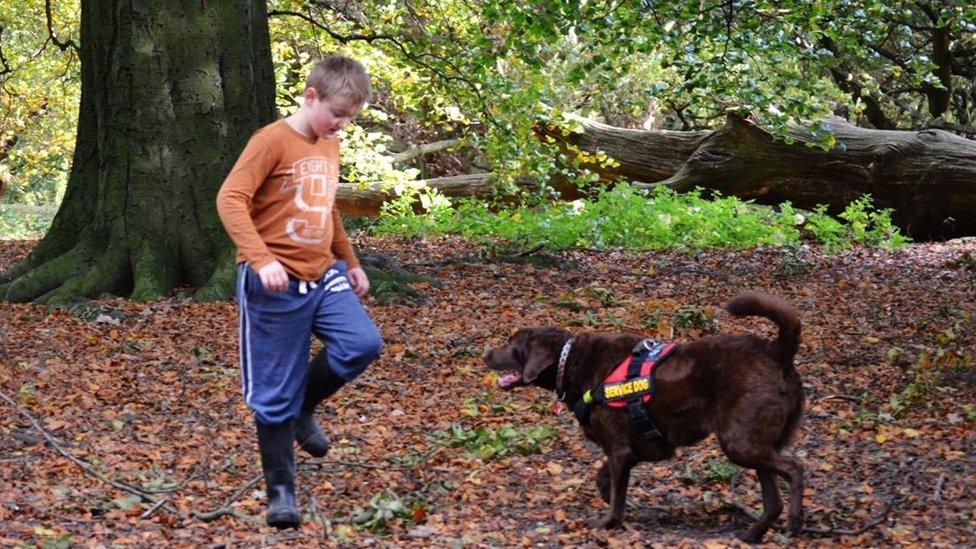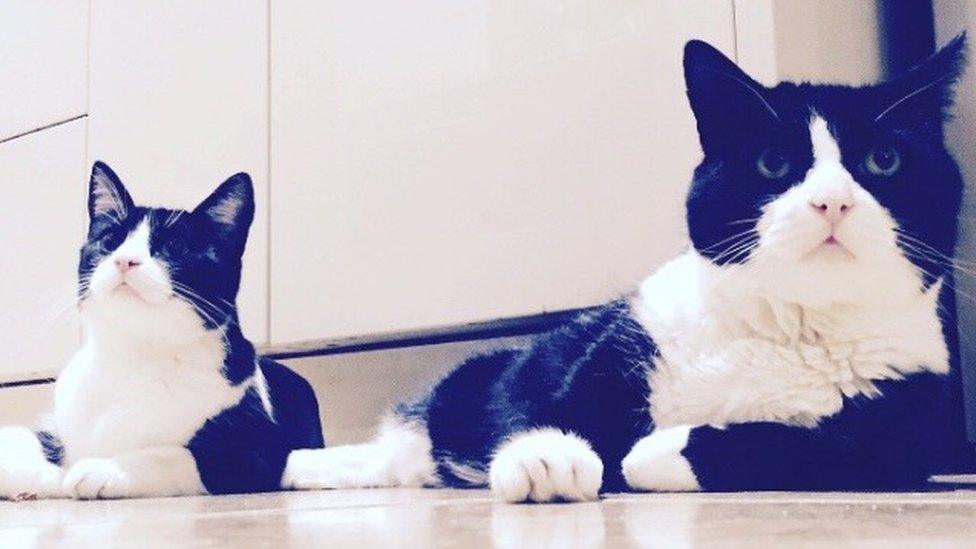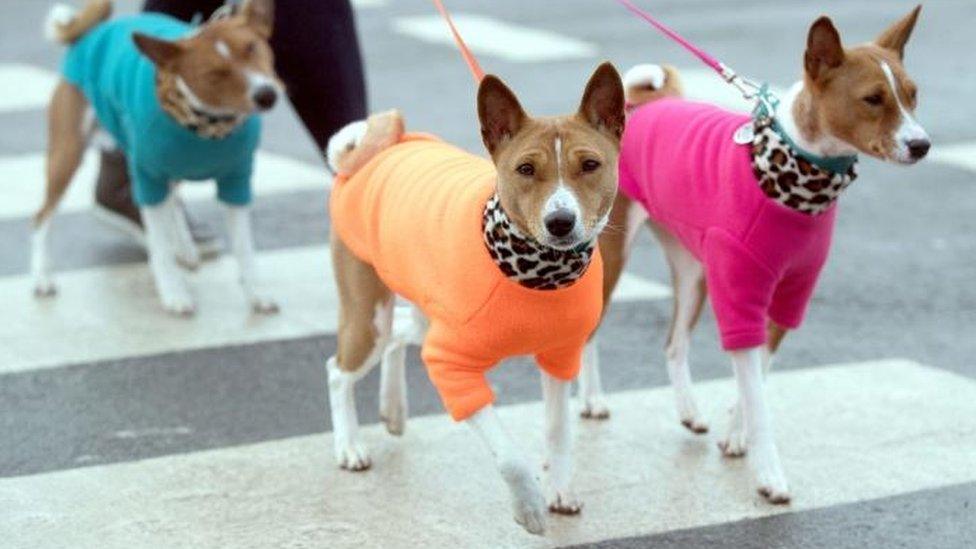Coping with the loss of a pet
- Published

The Queen with her corgis in 1973
Reports in the media say the Queen has been left "heartbroken" by the loss of her corgi Willow, external, who famously appeared in a film with Daniel Craig's James Bond during the London Olympics' opening ceremony.
Pets are members of the family, and it can feel like a huge loss when they pass away.
So how can you cope if this happens, and what support is out there if you need a little help doing so?
Alessandra had to explain to her son Ethan, who has autism, that his support dog Cocoa had died suddenly from eating sweets at a family friend's house.
"It tore our life apart," says Alessandra. Cocoa had helped Ethan learn to walk, to go outside in busy London, and to cope with separation from his mum. And on some occasions she saved his life, Alessandra says, by sensing he was about to have a seizure.
She described the loss as "devastating, life changing".
"For myself as a single parent, she was my reason to get out and talk to people. She was a therapy dog when my son was at school. She was an angel and touched so many lives."

Losing Cocoa changed Ethan's life and that of his mum Alessandra, but she found a way to help him grieve
Alessandra knew it would be very difficult to explain to Ethan what had happened, as he has limited comprehension. While Ethan was at school, she found a statue of a sleeping dog.
"I left it in the place where Cocoa always slept. When he came back I explained that 'Cocoa is now sleeping with angels'. That really helped."

Tips for coping
Kiran Singh, a mindfulness, wellbeing and relationship life coach, sets out three ways to help yourself deal with the loss of a pet:
Talk through it - The best thing you can do is find people you can talk to about your pet. Reach out to others who have lost pets. Check out online message boards, pet loss hotlines, and pet loss support groups. Find a support group — many veterinary schools have them.
Look after yourself - The stress of losing a pet can quickly deplete your energy and emotional reserves. Looking after your physical and emotional needs will help you to get through this difficult time. Eat a healthy diet and get plenty of sleep.
Exercise - Pets help many older adults to stay active and playful, which can boost your immune system and increase your energy. It's important to keep up your activity levels after the loss of your pet. Check with your doctor before starting an exercise programme and then find an activity that you enjoy.

'Special bond'
The Blue Cross, a leading UK pet charity, offers support to people whose pets have died. It emphasises that mourning for a pet can be an unexpectedly hard time: "Feelings of despair, loneliness and even depression can be overwhelming," it says on its website.
It says: "There may also be a strong sense of guilt and self-doubt, particularly when a decision has been taken to euthanase or rehome a pet.
"These feelings are normal and a testimony to the special bond between people and their pets."
The charity offers support because, it says, "we often hear that friends, family members or colleagues don't quite understand the upset that losing a pet can bring, and grieving for a pet can be a very lonely experience."
Bereaved owners can submit an online form, or call or text the Blue Cross,, external to get support from a fully trained team.

For Naomi Timperley, the key to dealing with losing her cats has been to bond with new animals.
"My way of coping emotionally has been to get cats who have looked similar to the previous cats." This means she has had a succession of black and white cats - from Ludwig, Dave and Rolo to new kitten Winnie.
"This has helped me with the grieving process. I will never forget any of my cats."
- Published10 March 2018
